CARO NOME – an aria from the opera Rigoletto
The online opera guide of Verdi’s Aria CARO NOME
Read Interesting facts and hear great YouTube Videos about the famous Aria “CARO NOME”.
If you want to hear more about the opera RIGOLETTO, click on the link to the opera portrait.
The Aria – Synopsis & Background
Synopsis: The Duke of Mantua is a cynical monarch who subordinates everything to his pleasures. He loves to chase women’s skirts. The Duke talks to the Count of Borsa about a mysterious bourgeois woman whom he secretly observes and follows. Rigoletto, his court jester, goes to his daughter Gilda’s house in the evening, the only ray of hope in his life. Nobody knows about his daughter. Even before her, Rigoletto keeps his real name secret. Fearing that the secret might be discovered. When he leaves her after his visit, the duke appears. She is the mysterious bourgeois whom he has been observing for months. They confess their love to each other. The duke masquerades as a student with the name Gualtier Maldé. When the duke has to leave her house, Gilda thinks of her lover Gualtier Maldé.
This aria comes from the ecstasy of Gilda’s first love. The interpretation demands vulnerability and beauty from the soprano instead of external splendour. Gilda is a young woman of 16-18 years.
Verdi composed an introduction with 2 flutes that present the theme:
That Verdi chose a flute is probably no coincidence. The singer’s voice must create the glamour and timbre of the flute. The aria begins in the piano. Again and again we hear the interjections of a solo violine on the long notes of the soprano:
The embellishments and coloraturas are signs of the tenderness and vulnerability of the still young woman. Therefore the trills must be sung very delicately. This is technically very demanding as they have to be very short, light, fast and clear.
The passage with the high C must again be sung with ease and legato.
Listen to this beautiful dotted upward line sung unisono by the flute and voice.
The Aria – the text of CARO NOME
Caro nome che il mio cor festi primo palpitar.
Le delizie dell’amor mi dei sempre rammentarCol pensier il mio desir a te sempre volerà
E fin l’ultimo sospir, caro nome, tuo saràCol pensier il mio desir
A te sempre voleràE fin l’ultimo sospir,
caro nome, tuo sarà
Beloved name, the first to move
the pulse of love within my heart,
thou shalt remind me ever
of the delights of love!In my thoughts, my desire
will ever fly to thee,
and my last breath of life
shall be, beloved name, of thee.
Written for a “dramatic coloratura soprano”
The role of Gilda is written for a dramatic coloratura soprano. The dramatic coloratura soprano must have both, coloratura ability and the ability to master dramatic expression with a larger vocal volume. If this voice can also sing lyrical parts, so it can happen that the “dramatic coloratura soprano” can sing a wide repertoire.
Famous interpretations of CARO NOME
Edita Gruberova became famous as a coloratura soprano with the role of Queen of the Night. We hear a singer who can penetrate the highest spheres with her voice and knows to masters the murderous ornaments.
Caro nome / Gruberova
For many, Callas was an unbeatable Gilda. Her “Caro nome” is great. Her technique is phenomenal, just listen to her perfect trills. Her interpretation is dramatic-moving and brings great emotions into the aria.
Caro nome / Callas
We hear a dreamy, romantic Gilda from Sumi Yo.
Caro nome / Sumi yo
The Gilda by Natalie Dessay is thoughtful and brilliant in the top notes.
Caro nome / Dessay
From Joan Sutherland we hear a technically and vocally perfect interpretation.
Caro nome / Sutherland
Peter Lutz, opera-inside, the online opera guide to the Aria “CARO NOME” from the opera RIGOLETTO.

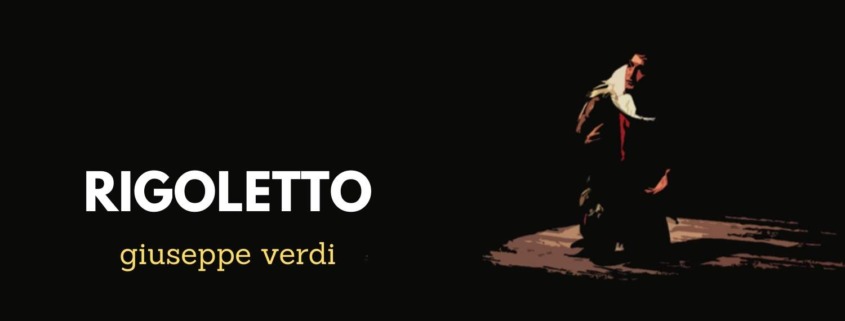
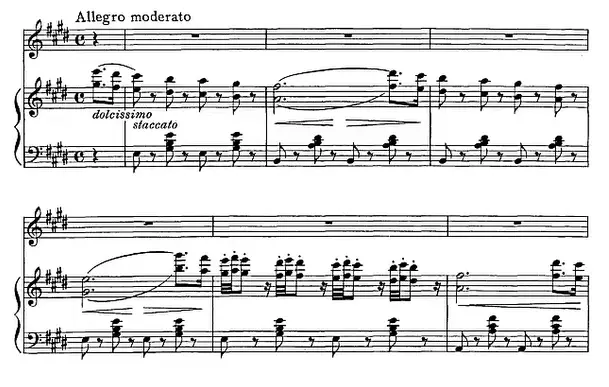
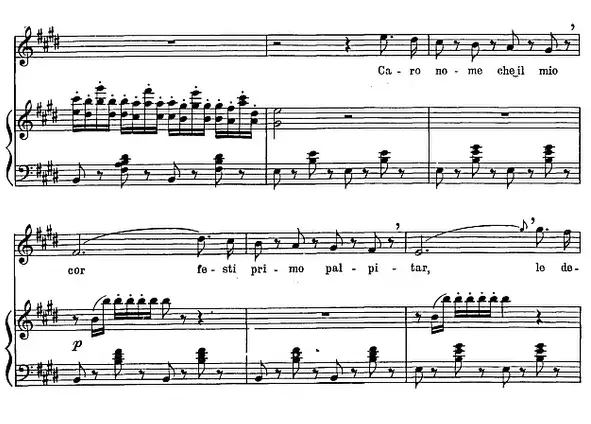
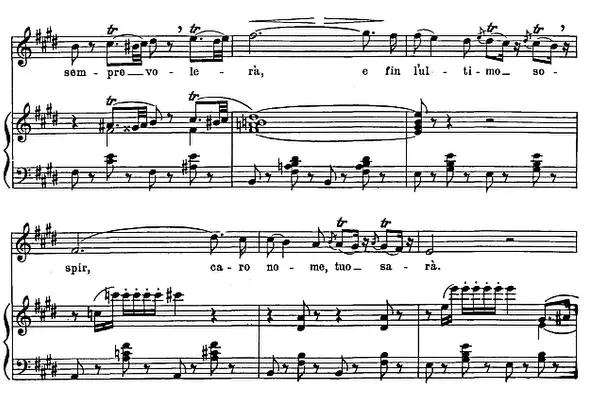
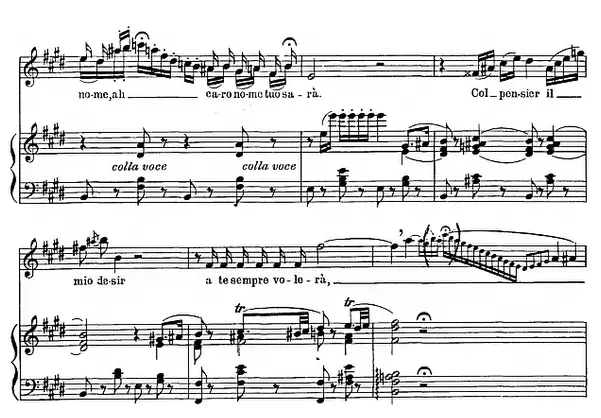
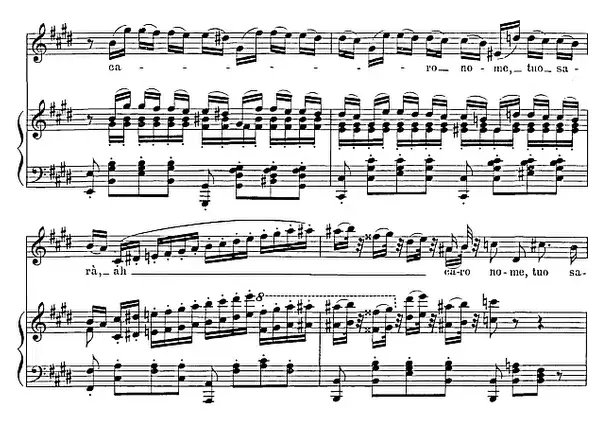


Did you know that “Caro Nome” was made into a popular song called Just Because by American singer Lloyd Price? https://www.youtube.com/watch?v=cCVwodV_LI8
Very interesting! I did not know. Thank you very much Emilia, for this great comment. Kind regards, Peter
Similarly, another American singer, Della Reese, did a version of Musetta’s Waltz in La Boheme, called Don’t You Know.
https://www.youtube.com/watch?v=VJSnKWpb_hs
The lyrics are wrong
Thank you very much for your message. I changed it.
kind regards
Peter
The lyrics are wrong.
Thank you very much for your message. I corrected it.